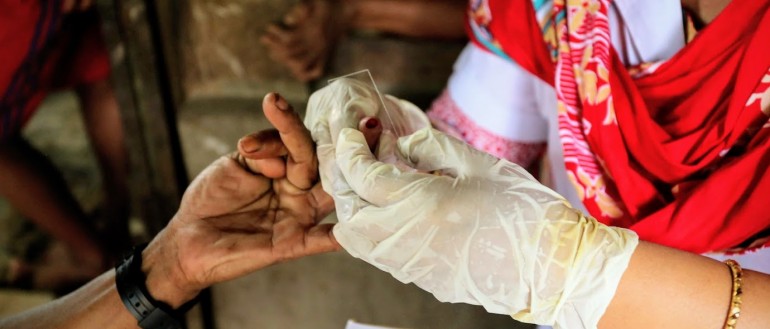Ground-breaking trial a step towards the elimination of vivax malaria
Outside of sub-Saharan Africa, the predominant cause of malaria in many areas is Plasmodium vivax, a parasite that forms dormant liver stages (hypnozoites) that can reactivate weeks or months following an acute infection and can lead to severe or life-threatening disease. Primaquine is the only widely available drug that kills hypnozoites.
A highlight of the year was the findings of the Menzies-led international, multi-centre IMPROV trial, which showed that a short course (7-day), high-dose primaquine regimen was just as effective as the 14-day course recommended by the World Health Organisation (WHO).
The findings have important implications for the treatment and elimination of vivax malaria in the Asia-Pacific, the Horn of Africa and the Americas with the shortcourse regimen having potential to improve adherence and therefore effectiveness of primaquine.
To accelerate the uptake of research findings into policy and practice, our malaria research team convened a meeting in Kathmandu, Nepal, to identify the specific needs and formal processes needed to change policy in 20 malaria-endemic countries.
Photo credit: Pearl Gan in association with OUCRU, Vietnam, and EOCRU, Indonesia.

